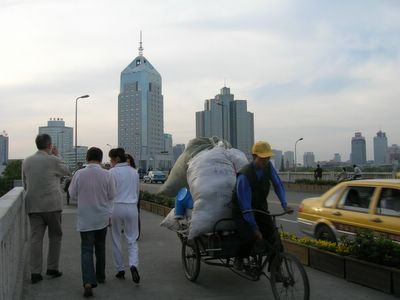24th July 2011. Spoken at Iain Robinson’s cremation Ceremony. He and I traveled extensively together in Japan and China. His sudden death was a shock to all who knew him. It seems good to return to that time two years ago and remember him – with gratitude.
When somebody is no more, whose life has gone out of them, we, who shared in that life – mourn. On all levels there is personal loss and great sadness. And so we gather together to remember what has been. We recall what the newly dead did in their lives. We remember the person that animated that life. We remember their actions – their traits – their strengths. And we pepper our thoughts with memories of their weaknesses too. And we can laugh, a little.
And – inevitably – there are silent regrets, small resentments, things said and things not said. Perhaps we remember deeds not done or – deeds unwise. How are we to find peace enough with our memories – happy ones and less happy ones? How are we to let go and move on?
At times such as this we must draw on our inner resources, be they informed by a faith tradition or not. It is said that all beings have an intuitive sense of a spiritual depth to our being. I term this the ground of our being – or our enlightened nature. Our default if you like! As fundamental to existence as the air we breath.
I’ll have a go at describing that ground, our nature as enlightened beings. The watchword is Compassion. Compassionate acceptance. And falling like rain, unconditional love. Compassion and love coalesce in wise discernment informing our actions. Compassion, Love and Wisdom. We have resources to hand. Let us put them to use for Iain’s sake, and for our own too. This is how we can help him now. Through loving acceptance of his sudden passing.
People came from far and wide to say their goodbye’s. Today at the crematorium, in Lancaster. We saw the coffin off. Later all that will remain will be ashes.
